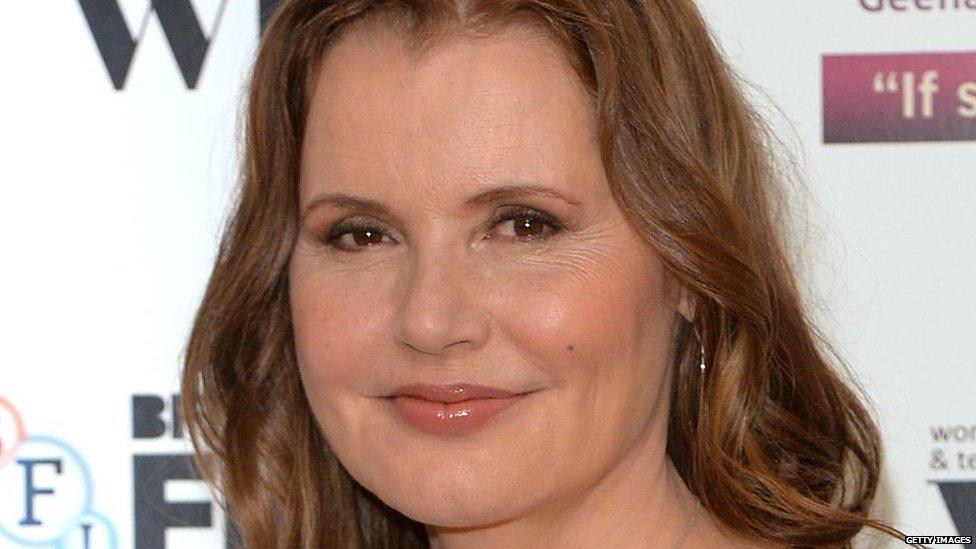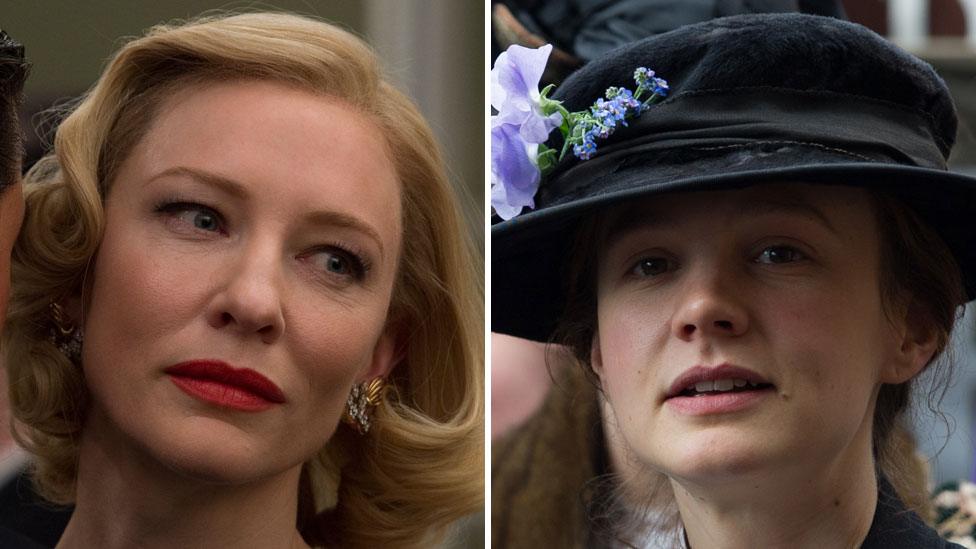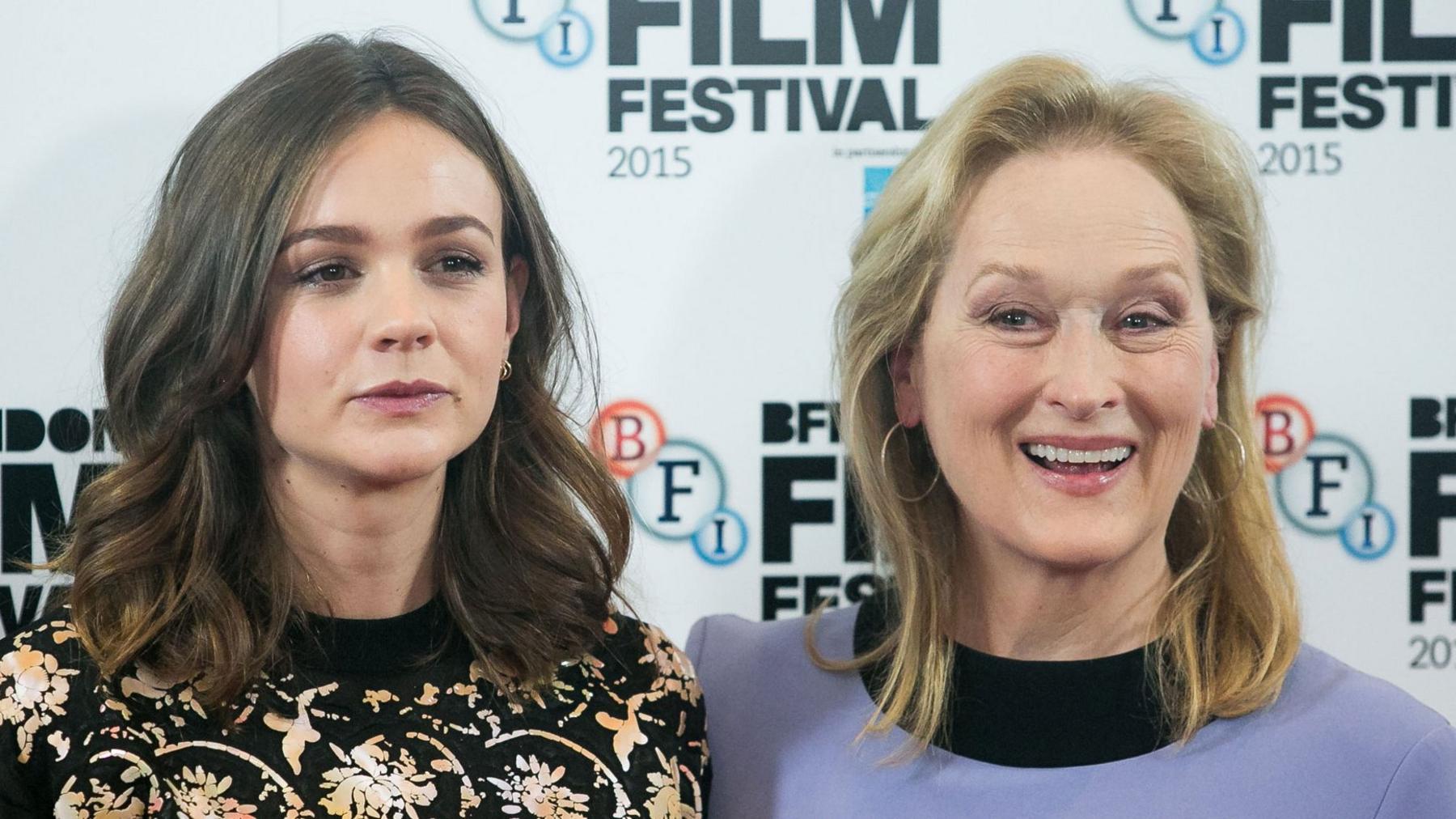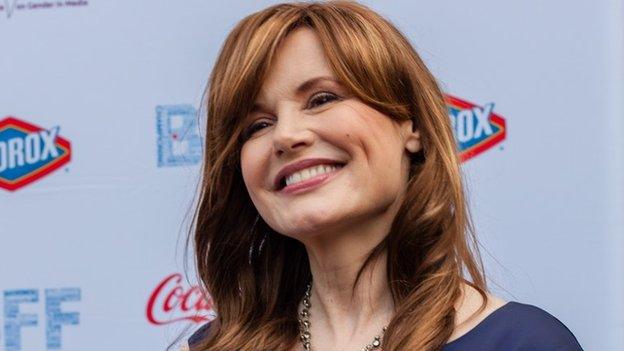Actress Geena Davis calls for more women on screen
- Published

The actress is best known for films such as Beetlejuice, The Long Kiss Goodnight and Beetlejuice
Actress Geena Davis has called for more women on screen and more challenging female roles in TV and film.
"We are unwittingly training generation after generation to see men and women as unequal," said Davis who was speaking on gender in media in London.
"Surely in the 21st century we should be showing kids that boys and girls should be sharing the sandbox equally?"
Davis, who founded a research institute into gender in media, called for "immediate and dramatic" change.
The Thelma & Louise star was the keynote speaker at an international symposium on gender in media, coinciding with this year's London Film Festival,.
The actress founded the Geena Davis Institute in 2004 after watching TV with her young daughter and observing there were "far fewer" female characters on screen.
"The ratio of male and female characters has been exactly the same since 1946," Davis lamented, with male roles outnumbering females by three to one in most children's film and TV shows.
"The more hours of TV a girl watches the fewer options she thinks she has, the more hours a boy watches, the more sexist he becomes," she said in her speech.
'Easy fix'
"Women are seriously under-represented in almost every sector of society across the world," she continued, but stressed that the entertainment industry was one of the few where that inequality could be redressed almost overnight.
"Make whatever you were going to make, and just put more women in it. Just cast more women."
Citing research that showed crowd scenes in films were often only 17% female, the 59-year-old actress argued that the solution was often an "easy fix"
"Everywhere I go, I bring that up and they say: 'Why are we doing that? Let's fix that right away!'"
"We can change what our future looks like," Davis told the audience.
Reflecting on her own career, which included an Oscar for the 1988 film The Accidental Tourist, Davis said she had "long been aware there are fewer great parts for women".
'Sweeping changes'
"Thelma & Louise changed the course of my life," she said. "It brought home to me in a very striking way how few opportunities we give women... to be empowered by the female characters they see on screen.
"Ever since that, I've made choices with that in mind, with the women in the audience in mind."
But she added: "I can only be this choosy because, so far, I have not run out of money yet. You can't be as fussy as all that unless you can afford to wait for good parts. If you read that I've signed on to play Sean Connery's comatose wife in a movie, you'll know I'm broke!"
She called on the industry to make "sweeping changes".
"I want reaching parity in films to seem fun and easy and creative. Give female characters more to do, more to say, greater aspirations... give them more clothes."
"I go directly to talk to the creators, the decision makers, and the response has been overwhelming. Lots of TV and movies have come out now that we know we have impacted."
"I feel very confident predicting that the needle will move significantly within the next few years, and it will be historic."
- Published7 October 2015

- Published7 October 2015

- Published14 May 2015
